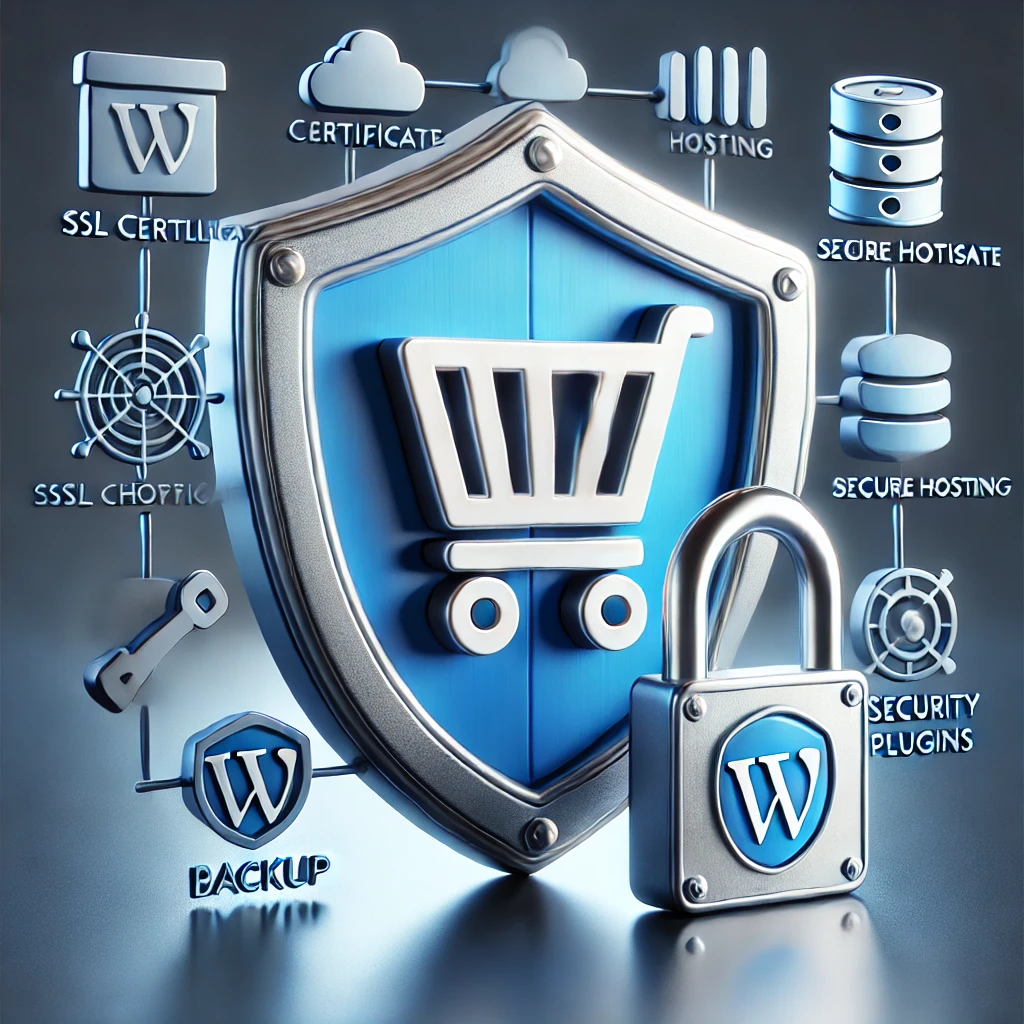
As the popularity of eCommerce continues to grow, WooCommerce, one of the most widely used WordPress plugins for online stores, attracts businesses of all sizes. However, with the rise of online shopping, security concerns for WooCommerce stores have also intensified. Protecting sensitive customer information and ensuring the smooth operation of your online store is crucial for maintaining customer trust, avoiding legal issues, and preventing financial losses. This article delves into the importance of security for WooCommerce stores and outlines best practices to protect against threats, such as SSL certificates, secure hosting, regular backups, and security plugins.
Why Security Matters for WooCommerce Stores
1. Customer Trust
Customers trust eCommerce stores with their personal and financial information. Any breach of this trust due to a security lapse can lead to a loss of customers, negative reviews, and reputational damage that could take years to repair.
2. Compliance with Legal Regulations
Various data protection laws, such as GDPR in Europe and CCPA in California, mandate that online businesses protect the personal data of their customers. Failure to comply with these regulations can lead to hefty fines and lawsuits.
3. Preventing Financial Loss
Cyberattacks such as phishing, malware, and brute-force attacks can lead to direct financial losses by stealing customer data, damaging the website, or disrupting business operations. Having a solid security plan in place can prevent these issues.
4. SEO and Business Reputation
Google and other search engines are increasingly emphasizing security as a ranking factor. A secure website helps improve search engine rankings, while a compromised site may be penalized. Additionally, displaying trust signals like SSL certificates encourages customers to make purchases, knowing their information is safe.
Best Practices to Protect WooCommerce Stores from Threats
1. Use SSL Certificates
SSL (Secure Sockets Layer) certificates are essential for encrypting the data exchanged between your customers and your website. This protects sensitive information, such as credit card details and personal information, from being intercepted by malicious actors.
When an SSL certificate is installed, your WooCommerce store will display “HTTPS” in the URL, and browsers will show a padlock icon to indicate that the site is secure. Not only does this enhance customer trust, but it also boosts your SEO ranking, as search engines favor secure websites.
Best Practice: Always ensure your SSL certificate is up to date and configured properly. Most hosting providers offer SSL certificates, often included with their plans, making it easy to implement.
2. Secure Hosting
The foundation of a secure WooCommerce store begins with a reliable hosting provider. Secure hosting ensures that your site is protected from various attacks, such as Distributed Denial of Service (DDoS) and brute-force attacks. A reputable hosting provider will offer features like:
- Regular Security Audits: Regularly reviewing your server for vulnerabilities.
- Firewall Protection: Safeguarding your store from external attacks.
- Server Monitoring: Constantly monitoring server activity for suspicious behavior.
- Automatic Backups: Enabling quick recovery in case of an attack or data loss.
Best Practice: Choose a hosting provider that specializes in WooCommerce or WordPress hosting, as they often provide additional layers of security optimized for the platform.
3. Regular Backups
Even with the best security measures in place, there’s always a possibility of a breach or data loss. Regular backups ensure that if your site is compromised, you can quickly restore it without losing vital data. WooCommerce sites contain not just product listings but also customer orders, payment information, and other essential business data.
Automating backups ensures that you always have the latest version of your website stored securely. Store backups offsite or use a cloud-based solution to avoid losing your data if your hosting server is compromised.
Best Practice: Schedule daily backups of your WooCommerce store to ensure you can recover the latest version in case of an emergency.
4. Use Security Plugins
Security plugins designed for WordPress and WooCommerce are indispensable tools for protecting your online store. These plugins offer a range of features, including malware scanning, firewall protection, and real-time monitoring of suspicious activity.
Some of the top security plugins for WooCommerce include:
- Wordfence: Offers firewall protection, malware scanning, and login security features.
- iThemes Security: Provides brute-force protection, two-factor authentication, and vulnerability scanning.
- Sucuri Security: Monitors your site for malware and offers DDoS protection and firewall services.
Best Practice: Install a reputable security plugin and configure it to perform regular scans, monitor site activity, and notify you of any potential threats. Combine multiple plugins with different strengths to create a multi-layered defense system.
5. Two-Factor Authentication (2FA)
Two-factor authentication adds an additional layer of security by requiring users to enter a secondary code (usually sent to their mobile device) in addition to their password. This can prevent unauthorized access, even if a hacker obtains login credentials.
Best Practice: Enable 2FA for your WooCommerce store’s admin accounts and encourage customers to use it for their accounts as well. Some security plugins provide 2FA functionality, or you can use dedicated plugins like Google Authenticator.
6. Strong Password Policies
Many security breaches occur due to weak or compromised passwords. Implementing strong password policies for both your customers and admin users is an essential security practice.
Encourage or enforce the use of complex passwords that include uppercase and lowercase letters, numbers, and special characters. Additionally, consider setting password expiration policies for admin users, requiring them to update passwords regularly.
Best Practice: Use password management tools to generate and store strong, unique passwords for each user account on your WooCommerce store.
7. Regular Updates
WooCommerce, WordPress, and any third-party plugins you use regularly release updates that often include security patches. Outdated software can be vulnerable to attacks, so keeping everything updated is crucial for preventing security breaches.
Best Practice: Enable automatic updates for your WooCommerce store, or make a habit of checking for updates regularly. Before applying major updates, create a backup to avoid issues.
The security of your WooCommerce store should be a top priority, not only for the safety of your customers but also for the long-term success of your business. By implementing security best practices—such as using SSL certificates, securing your hosting, performing regular backups, and installing security plugins—you can protect your store from various online threats. A proactive approach to security will not only help you avoid costly breaches but also build trust with your customers, leading to a more successful and sustainable eCommerce business.

